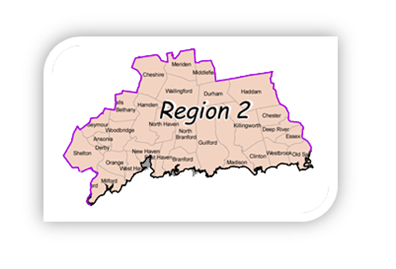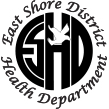Region 2 Medical Reserve Corps

What is the Medical Reserve Corps (MRC)?
The Medical Reserve Corps is a national network of volunteers organized locally, engaging their communities to strengthen public health, reduce vulnerability, build resilience, and improve preparedness, response and recovery capabilities. Medical and non-medical volunteers who dedicate their skills, expertise, and time to support ongoing public health initiatives and health emergencies.
Mission
The mission of the Region 2 Medical Reserve Corps is to provide trained and prepared individuals, who will respond to public health emergencies and other health related community needs, in an effort to save lives and reduce the threat of disease and injury.
Region 2 is made up of 7 MRC Units that work together to improve prepare MRC volunteers to respond in emergency and non-emergency times. Shoreline MRC serves as the Region 2 MRC Lead. Information on each of the MRC Units can be found on their websites:
- Chesprocott MRC (Housed at Chesprocott Health District)
- Milford MRC (Housed at Milford Health Department)
- New Haven Health Department MRC (Housed at New Haven Health Department)
- Quinnipiack Valley MRC (Housed at Quinnipiack Valley Health District)
- Shoreline MRC (Housed at East Shore District Health Department)
- Wallingford MRC (Housed at Wallingford Health Department)
- West Haven MRC (Housed at West Haven Health Department)
Region 2 MRC Unit Points of Contact
What do MRC Volunteers do?
The responsibilities of MRC volunteers vary, depending on the nature of the needs in their community. MRC volunteers can:
- Assist during emergencies: Major emergencies can overwhelm the capabilities of first responders, particularly during the first 12 to 72 hours. Medical and other health volunteers can provide an important "surge" capacity during this critical period. They also can add to medical staff during shortages at local medical and emergency facilities. In short, communities often need medically and non-medically trained individuals and others to fill in the gaps in their emergency response plans and to improve their response capabilities overall.
- Assist with public initiatives: MRC volunteers also strengthen the overall health of Americans by participating in general public health initiatives such as flu vaccination clinics, diabetes detection programs, and preventative health screening.
- Get involved with ongoing community health outreach and education efforts: The U.S. Surgeon General has outlined their priorities for the health of individuals and the nation as a whole. MRC volunteers are encouraged to work toward the prevention of disease and injury, eliminating health disparities, and improving public health preparedness.
Additionally, MRC units work to actively improve and protect their community’s public health by supporting:
Why volunteer?
What might I be asked to do?
Volunteers may be asked to contribute in several different ways, such as providing medical treatment or evaluation, assisting with volunteer management, providing education, administering vaccines, or distributing medication. We do our best to ensure that the role you are asked to play is appropriate for your level and area of expertise. Volunteers may:
What can you expect from the MRC?
Upcoming Trainings and Events:
Examples of Regional Training Opportunities:
Virtual Training Opportunities:
